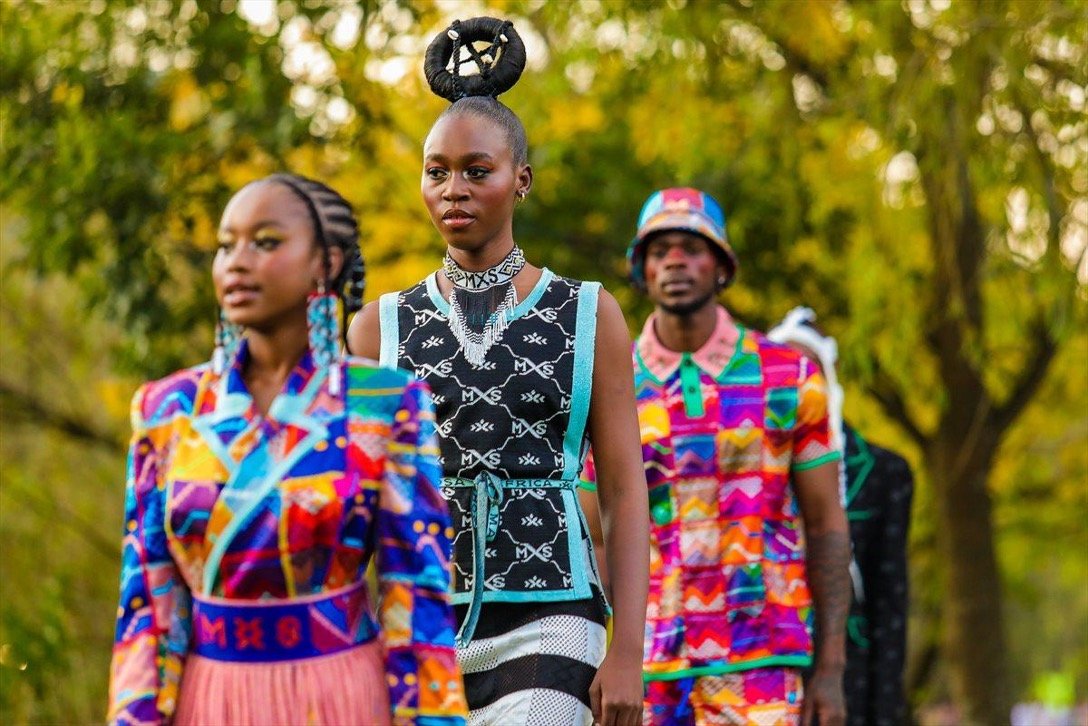The Language Paradox: The Power and Pitfalls of Neologisms
Discover the exhilarating yet treacherous terrain of creating new words, from jarring dissonance to heartwarming resonance. Explore the artistry of portmanteaus and the impact of neologisms on storytelling, reflecting both the human condition and our evolving society.
By Adam Van Graan, Junior Writer, Rothko Brand Partners
Photo: George Saunders photographed by Tim Knox.
Are You Neologisms?
In our work, words have stakes. We have quite a good amount of leeway (five to seven percent) regarding whether or not the word we have chosen is the right word. Get it right, the page gleams; get it wrong, we won’t be pelted with apples. Not a big deal.
But with neologisms—with neologisms—one more time: with neologisms—the stakes are a little higher, which makes talking about them very exciting. They’re either completely wrong or completely right, and when they are wrong they make you a lot angrier than they would if they were just the wrong regular word.
You think: Did someone go out of their way to create—that?
And probably you shiver, and your faith in things falters.
Then you’re okay—but you’re mad.
Such as in this fictional case study: You attend a corporate event, and there, several speakers use a particular neologism, and each time they do, your very soul goes cold, and it starts to shake.
That word... is ‘doference.’
It is a combination of ‘do’ (to perform an action) and ‘conference’ (a meeting of people). At a ‘doference,’ the MC explains, you do not speak—you do. But throughout the event, nobody does—but everyone speaks.
What’s that about?
You sigh, go home, and days later, you write a blog. You ask: What is going on? What’s with the dissonance? You have no doubt that the intentions of a ‘doference’ are really, really good. They’re actually sweet. Say it enough times and you can hear the feet meet the trampoline and the body lift into air.
But the execution—it just doesn’t convince! You don’t want to go to a ‘doference.’ Actually, you find yourself longing to be excluded from it. That’s what’s so sad: everyone on earth should participate in a Doference, but the only way to get them to would be to call it something else—literally, anything else.
You’re reminded of a George Saunders story about a corporate world, where things are cute but sort of amiss, aiming at—but not quite touching—what it means to be human.
Now, I say, enough of that.
I want to talk about the good neologisms, too. But before we get there, I need to make a confession.
I Don’t Quite Know Where I’m Going with This – But Let’s See!
Thank you for being here. Let’s begin this section by saying, ‘I Love Neologisms.’
I love them when they work: there is something artisanal in taking two separate words and stepping back as their new meaning startles you. This kind of word is also called a portmanteau, a term which feels like an example of itself. I always picture a clasped suitcase filled with something secret when I hear it. However, this is likely ascribed to the fact that one of the first portmanteaus I learned was, indeed, ‘suitcase’, and the fact that a portmanteau is actually—seriously—the name of a sort of French bag.
What are the chances of that? Hmph. Small world.
OK. Going on.
I’m on about day nine-thousand-and-something of my life and, at the moment, language does not impact me the way it once did. A wonderfully constructed sentence is often just that—it doesn’t really make the blood ring anymore. But some neologisms, I find, still do ‘the thing,’ you know, tinker with and ring your skull, making being feel effervescent.
Mostly, it’s the ones belonging to Paul Celan. ‘Tallowlamp’ and ‘Speechgrille’, for example, in their careful mousetrap minutiae, make me feel happy. The true destroyer, though, is ‘Ichten’ which, I’m afraid, is German. It is translated into ‘Ied.’
What?
Exactly.
‘Ied.’
Paul Celan took the personal pronoun ‘I’, turned it into a verb, and rendered it into the past tense: the neologism in verse reads: ‘they Ied.’
Wow!
He can do that?
We can?
I wanted to cry.
It was like Paul Celan had put language in a kennel and taught it a trick and now it wowed everybody. This integral, invisible part of us—our absorption of meaning through an arrangement of letters—was suddenly inverted, made less passive, made more of an act of worship when he said: It is changed, now. Tiny letters you had to climb to understand them.
That was nice. The skull and the blood in it rang.
What’re We Making?
Neologisms seem to work well when conveying complicated, delicate feelings or talking about fragile objects. They can be explosive—but not abrasive—gestures of sensitivity, and it’s in that chemical state that this reader finds them most affecting.
However, it would be a lie to say I have not laughed at, and loved, some neologisms in product names, too.
For the second time today, George Saunders features in this blog, and here he is given a little more time. Some of his stories feature a range of things that do not exist, so he is forced to invent their new names. There’s ‘Verbaluce,’ a drug that makes you speak more eloquently, ‘KnightLyfe,’ a drug that makes you speak and act like a medieval knight, and ‘Darkenfloxx,’ which is a disturbing substance and I pity the fictional characters who are coaxed into taking it.
I like these neologisms! In context, they are good. They don’t only talk about a something new. Their very construction contributes to the worldbuilding of the story in which they are found. The Ys and Xs and alternative spellings position events just a little bit in the future, which is where George Saunder’s (I am a big fan) (hi) (Mr Saunders) stories often occur.
It’s efficient, and respectful.
No need to say: ‘13 years in the future, mankind is suffering badly again...’
Instead: ‘Here is a Funny Word I made up using just The Letter Q.’
Symbolising time periods is something neologisms are really good at, because they only come around in the present, and they should, we think, capture the sentiments of an era.
Oh No. What Do Our Recent Words Say About Us?
‘Broflake.’
‘Quiet quitting.’
‘Goblin mode.’
‘Permacrisis.’
‘Cottagecore.’
Those are pretty sad. You don’t even have to choose the negative ones intentionally: they’re just the most readily available. Why are the people contributing to our dictionaries not feeling the love?
Go back a hundred years, and the dictionary-makers are rub-it-in-your-face happy. They won’t stop saying ‘fridge’ (way better than the old spelling, ‘frig’) and ‘T-shirt’ and ‘sweatshirt’ and the ‘roundabout’ and ‘hitch-hike.’
Well, good for them. It’s cool you’re making words about stuff. However, while you’re busy being utilitarian and pleasant, we’re talking about our pervasive, hopeless feelings—but at least we’re being funny. Future anthropologists are going to use our neologisms to identify us as The People Who Laughed While They Gave Up. They will use yours to... to... I don’t know. It’s whatever. I’m just saying: I like ours more. It’s the truth. I would just rather have a more nuanced understanding of the abstract nouns that affect us than know what a fridge is. And be able to see a cottagecore sweater from afar and shout, ‘So it’s finally cold enough to wear wool, eh?’ And know that the funny friend going goblin mode is in need of a hand.
And for that, I’ve got to thank Words. And I’ve got to thank People. And I’ve got to thank Neologisms, funny things that they are. The skull doesn’t always ring anymore: but now and then the heart feels a do-doference.




